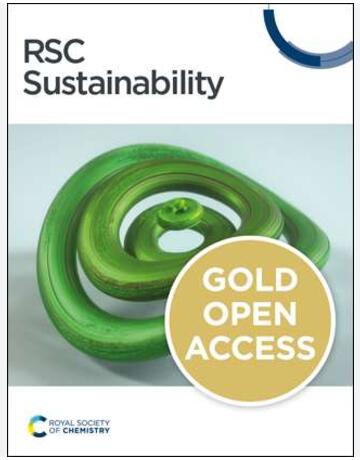Shanghai Transport Carbon Emission Forecasting Study Based on CEEMD-IWOA-KELM Model
IF 3.3
3区 环境科学与生态学
Q2 ENVIRONMENTAL SCIENCES
引用次数: 0
Abstract
In the light of the worsening of, and the adverse effects produced by, global warming, a study of Shanghai’s transport carbon emissions can provide an advanced model that can be replicated throughout other cities, thus assisting in the management and reduction of carbon emissions. Considering the volatility and nonlinearity of the carbon emission data series of the transport industry, a prediction model combining complementary ensemble empirical modal decomposition (CEEMD), the improved whale optimization algorithm (IWOA), and the Kernel Extreme Learning Machine (KELM) is proposed for a more accurate prediction of the forecasting of carbon emissions from Shanghai’s transport sector. First, nine indicators were screened as the influencing factors of Shanghai’s transport carbon emissions through the STIRPAT model, and the corresponding carbon emissions were calculated with data related to Shanghai’s transport carbon emissions from 1995 to 2019; Secondly, CEEMD was used to decompose the original data into multiple smooth series and one residual term, and KELM was applied to build a prediction model for each decomposition result, and IWOA was used to optimize the model parameters. The experimental results also demonstrate that CEEMD can effectively reduce model errors. Comparative experiments show that the IWOA algorithm can significantly enhance the stability of machine learning models. The outcomes of various experiments indicate that the CEEMD-IWOA-KELM model produces optimal results with the highest accuracy. Additionally, this model exhibits high stability, as it provides a wider range of methods for predicting carbon emissions and contributing to carbon reduction targets.基于 CEEMD-IWOA-KELM 模型的上海交通碳排放预测研究
在全球气候变暖的背景下,对上海交通碳排放的研究可以为其他城市提供可复制的先进模型,从而帮助管理和减少碳排放。考虑到交通行业碳排放数据序列的波动性和非线性,本文提出了一种结合互补集合经验模态分解(CEEMD)、改进的鲸鱼优化算法(IWOA)和核极端学习机(KELM)的预测模型,以更准确地预测上海交通行业的碳排放预测。首先,通过STIRPAT模型筛选出9个指标作为上海交通碳排放的影响因素,并利用1995-2019年上海交通碳排放的相关数据计算出相应的碳排放量;其次,利用CEEMD将原始数据分解为多个平稳序列和一个残差项,并应用KELM对每个分解结果建立预测模型,利用IWOA对模型参数进行优化。实验结果还证明,CEEMD 可以有效减少模型误差。对比实验表明,IWOA 算法能显著增强机器学习模型的稳定性。各种实验结果表明,CEEMD-IWOA-KELM 模型能产生最佳结果,准确率最高。此外,该模型还表现出很高的稳定性,为预测碳排放和实现碳减排目标提供了更广泛的方法。
本文章由计算机程序翻译,如有差异,请以英文原文为准。
求助全文
约1分钟内获得全文
求助全文
来源期刊

Sustainability
ENVIRONMENTAL SCIENCES-ENVIRONMENTAL SCIENCES
CiteScore
6.80
自引率
20.50%
发文量
14120
审稿时长
17.72 days
期刊介绍:
Sustainability (ISSN 2071-1050) is an international and cross-disciplinary scholarly, open access journal of environmental, cultural, economic and social sustainability of human beings, which provides an advanced forum for studies related to sustainability and sustainable development. It publishes reviews, regular research papers, communications and short notes, and there is no restriction on the length of the papers. Our aim is to encourage scientists to publish their experimental and theoretical research relating to natural sciences, social sciences and humanities in as much detail as possible in order to promote scientific predictions and impact assessments of global change and development. Full experimental and methodical details must be provided so that the results can be reproduced.
 求助内容:
求助内容: 应助结果提醒方式:
应助结果提醒方式:


